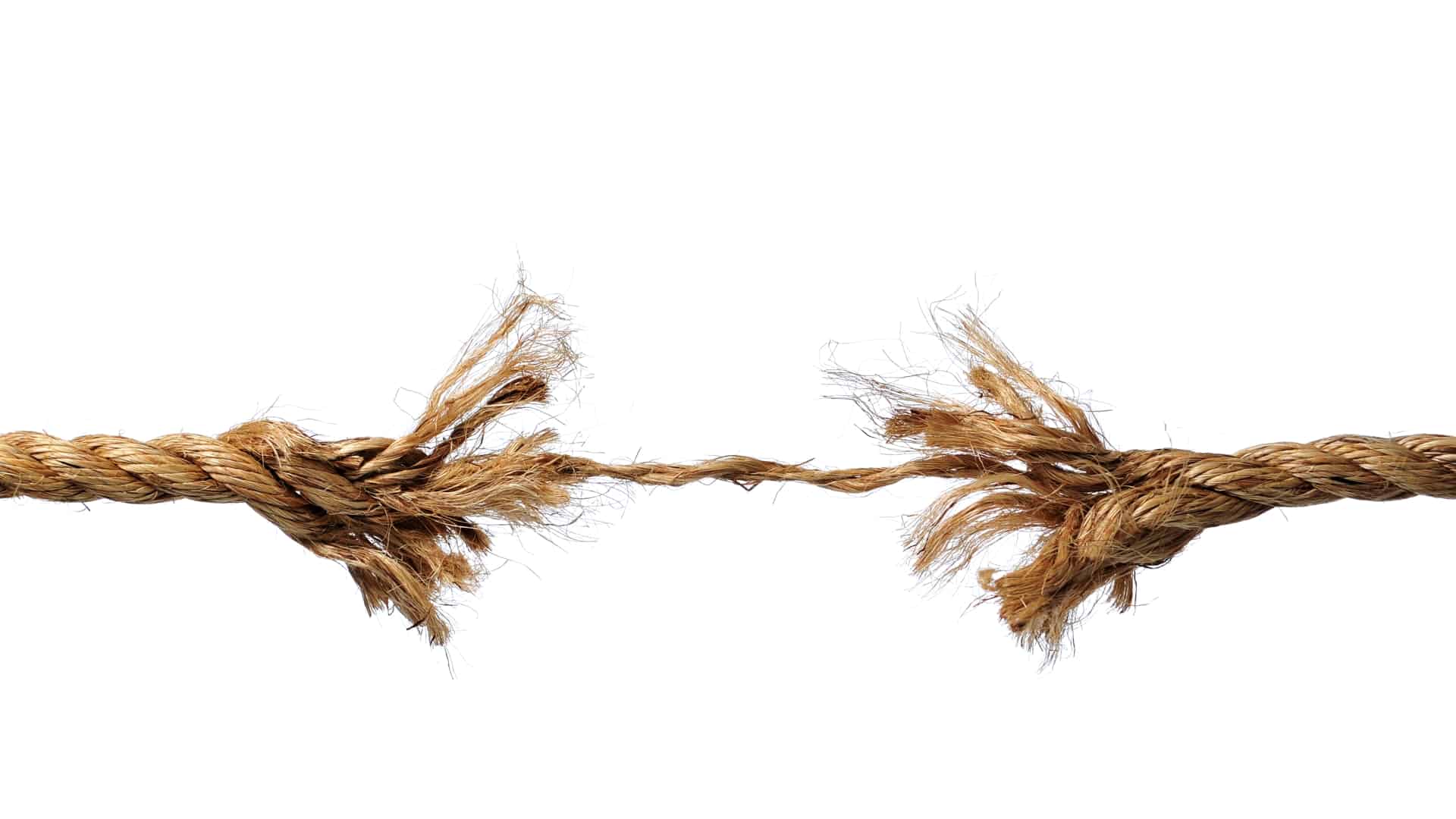What to Do About Weakness (2 Corinthians 12:1-13)

Big Idea: Don’t deny your weakness; don’t try to fix your weakness. Boast in your weakness, because it’s the path to experiencing Christ’s power.
What are you going to do about your weakness? By weakness I’m not talking about sin. I’m talking about the human condition of hardships, limitations, painful circumstances, and difficulties. The kind of weakness we’re talking about is not just a list. It’s our very condition. It’s not weaknesses, it’s weakness; it’s a description of the human condition. “We are perishable. We are mortal. We face a multitude of afflictions in our lives.” (David Powlison)
What are you going to do about your weaknesses? I can only think of three possible answers.
One is to deny our weakness. This is not an approach that works for long. We can feel strong, but that doesn’t mean we are strong. We all have a couple of very significant problems. One of them is sin, which we talk a lot about here, but that’s only one of our problems. But that’s not the only one. The other is that we are finite creatures. God made us to be this way. You have weaknesses.
Your body has weaknesses. If you don’t think so, just wait until someone sneezes on you and you come down with a cold. Do you realize that your body, as complex as it is, can be felled by a small microorganism. One bite from a small insect is all it would take to stop any of us.
And that’s not even to talk about our other weaknesses and limitations. You can try to deny your weakness, but it’s hard to maintain this illusion for long. We are weak. We face limitations.
What are you going to do with your weakness? You can deny it, but good luck with that. It won’t get you very far.
Here’s another way we can try to deal with our weakness. We can try to fix our weakness. And we try. This is the self-improvement approach. It’s why a lot of us come to church, actually. We want to find some tips we can implement that can help to fix our lives. We keep looking for books that can help us.
There remains a powerful belief within our hearts that says, ‘If I have power and control, then life will go the way I want it to.’ This is the subtle lie at the heart of sin. It is the reason why self-help is such a temptation for us. It is exactly what we want to be true. We want to believe that we can fix our lives, and we want to believe that learning the right technique will save us. (Beloved Dust)
Self-improvement can help you to a certain extent. You can get in better shape, learn better habits, and improve your life — up to a point. An article in GQ called “Why Self-Help Might Actually Be Making You Less Happy” says:
We’ve become so obsessed with looking inward and trying to achieve our ideals, he says, that it’s actually made us less equipped to be a human on the outside (you know, the type that’s actually connected to other people). Oh, and on top of that, we’re supposed to be happy all the time, which, turns out, is a hard thing to do when you’re constantly being told you can do and be better, and more positive, and more productive. It’s almost like self-help isn’t always… that helpful.
You can try to fix all your weaknesses, but two things will happen. First: you will be exhausted. It’s a never-ending treadmill and you’ll never be able to keep up. It will crush you under the impossible weight of expectations you were never made to meet. Here’s the other problem: you will still be weak. No matter how much you try to improve yourself, you will never be able to eliminate your weaknesses.
What are you going to do with your weakness? You can deny your weakness, but that won’t fool anyone. You can try to fix your weakness, but that will crush you, and you won’t succeed.
So here’s an alternative. Boast about your weakness. This is something that would never occur to us if God didn’t tell us to do this in his Word. You know your limitedness, your finiteness, your inabilities, the fact that you’re dying, the things you can’t change about yourself? Don’t deny your weakness; don’t try to fix your weakness. Boast in your weakness.
In a world that was obsessed with strength and power, Paul writes to the Corinthians in 2 Corinthians 11:30 “If I must boast, I will boast of the things that show my weakness.” He repeats in next chapter, 2 Corinthians 12:9: “Therefore I will boast all the more gladly of my weaknesses…”
Let me give you some context. Paul is addressing a group in the Corinthian church that bragged about their strength and put Paul down about his weakness. Paul responds by saying, “Okay, if you want me to boast, here it goes.” And although he has a lot of things to boast about, he focuses on his suffering. Paul does the very opposite thing we would expect. He boasts in his suffering. He boasts about his weakness.
Finally in this chapter his logic becomes clear. Paul shows us the wrong way to boast, and then he shows us the right way.
Not Because You Don’t Have Strengths
In verses 1 to 4, Paul recounts an experience he had 14 years earlier. This would have been 42 A.D. before Paul ever began his missionary journeys. Paul went through a remarkable experience, one that he obviously hadn’t shared with too many people. It was too private.
Paul had an experience of being snatched up into the highest level of heaven, the very throne room of God. He heard and saw things there he was not permitted to express.
Paul’s enemies, the super-apostles, are claiming that they’ve had visions and revelations. God has spoken to them. Paul says, “Okay, if you want to compare visions and revelations, I think I’ve got you beat.” This is check and checkmate.
This is what Paul’s enemies were boasting about. They boasted about these kinds of experiences with God. Paul had a better one than they did, and he didn’t dare to boast about it.
Paul says:
On behalf of this man I will boast, but on my own behalf I will not boast, except of my weaknesses— though if I should wish to boast, I would not be a fool, for I would be speaking the truth; but I refrain from it, so that no one may think more of me than he sees in me or hears from me. (2 Corinthians 12:5-6)
When it comes to boasting about strength, Paul could beat us all. But this is not the way to go.
Why did Paul even experience this? Not because he was strong, but because he was weak. Paul needed this in order to keep going. So even this experience was a sign of Paul’s weakness.
John Calvin supplies the answer: “… this thing happened for Paul’s own sake, for a man who had awaiting him troubles hard enough to break a thousand hearts needed to be strengthened in a special way to keep him from giving way and to help him to persevere undaunted.” Paul was granted a greater view of the glory to come in order that it might sustain him in his epic beatings and shipwrecks and betrayals and heartaches that rose and fell with the fortunes of his churches. This epic experience sustained an epic heart. (Kent Hughes)
Let me tell you what I learn from this. It’s easy to think, “The reason Paul is going to boast in weakness is because that’s all he’s got.” Paul corrects us of this mistaken notion. The reason Paul boasts in weakness isn’t because he wasn’t strong. If Paul wanted to play that game, he could beat us all.
Somebody who’s actually got something to boast about says, “Don’t boast in your strength!” No matter what you’ve got to boast about, I bet you can’t beat what Paul had to boast about — and yet he chooses instead to boast about his weaknesses.
The Right Way: Boasting in Weakness
In verse 7, Paul describes his greatest weakness:
So to keep me from becoming conceited because of the surpassing greatness of the revelations, a thorn was given me in the flesh, a messenger of Satan to harass me, to keep me from becoming conceited.
What was this thorn in the flesh? Who knows! Basically there are three major theories about what Paul is talking about (summarized by George Guthrie):
- Physical illness of some kind — Suggestions include malarial fever, epilepsy, severe headaches, eye problems, a speech impediment, a socially debilitating disease or disfigurement, or some unspecified personal illness
- A psychological malady — Suggestions include anxiety disorders, pangs of conscience over persecuting the church, deep suffering over his ineffectiveness in reaching the Jews with the gospel, depression, and sexual temptation
- Opposition — Suggestions include conflict with the Judaizers, specific opponents, opposition in general, a specific opponent at Corinth, and even the church at Corinth itself
We don’t know the exact nature of this weakness. Here’s what we do know. Paul wanted God to take away this issue from his life, but God refused. In fact, God used this weakness. It kept Paul from imagining himself as a spiritual superman. It reminded him of his mortality and weakness. His weakness was a pathway to experiencing God’s power.
Three times I pleaded with the Lord about this, that it should leave me. But he said to me, “My grace is sufficient for you, for my power is made perfect in weakness.” Therefore I will boast all the more gladly of my weaknesses, so that the power of Christ may rest upon me. (2 Corinthians 12:8–9)
Here’s the thing about how God uses weakness. God is somehow able to take the weakest things — think of the crucifixion of Jesus, for instance — and use it as the platform for power. God works through weakness. Even God himself didn’t come into the world with power, although he could have. Jesus laid aside any signs of power and came as a servant. He came to suffer. And God brought about our salvation not through the strength of our Savior but through his weakness. That’s just how God works.
What if one of God’s greatest gifts in your life right now is the very thing you want him to take away? What if you are meant to boast in the limitation you hate the most, and see it as one of God’s greatest blessings in your life, something that’s even more of a gift than your strengths?
All our limitedness, our frustrations with ourselves, and our inabilities are gifts from God. They are all moments of grace calling us to depend fully on God and to proclaim, “Without you I can do nothing!” (Beloved Dust)
If you know me at well, you know that this lesson lies at the heart of this church. When we started to plant in 2012, we intended to plant out of a position of strength. Throughout the course of that first year, God brought our family to a place of complete weakness and powerlessness. Looking back I see this as a gift. God wanted it to be clear right from the start that we are not planting this church in strength but in weakness and dependence on him.
Don’t deny your weakness; don’t try to fix your weakness. Boast in your weakness, because it’s the path to experiencing Christ’s power.
On May 23, 2019, David Powlison, a professor, writer, and counselor, was scheduled to give the closing comments at the Westminster Theological Seminary Graduation Ceremony. He couldn’t attend, however, because he is receiving hospice care at home, suffering from stage IV pancreatic cancer. In fact, he just died this past Friday.
Someone gave his speech in his absence.
Listen to the message he sent:
It’s so countercultural to people who want to say, “We are STRONG!” and “You can do it!” On the contrary, we are fundamentally weak. That weakness is a most unusual door into all the ways God enables us to be strong…
The right kind of strength comes from the right kind of weakness…
My deepest hope for you is that in both your personal life and your ministry to others, you would be unafraid to be publicly weak as the doorway to the strength of God Himself.
Don’t wait until you’re on your deathbed to realize this. Weakness is the door to Jesus’ presence and blessing. Don’t deny your weakness; don’t try to fix your weakness. Boast in your weakness — even publicly — because it’s the path to experiencing Christ’s power.





